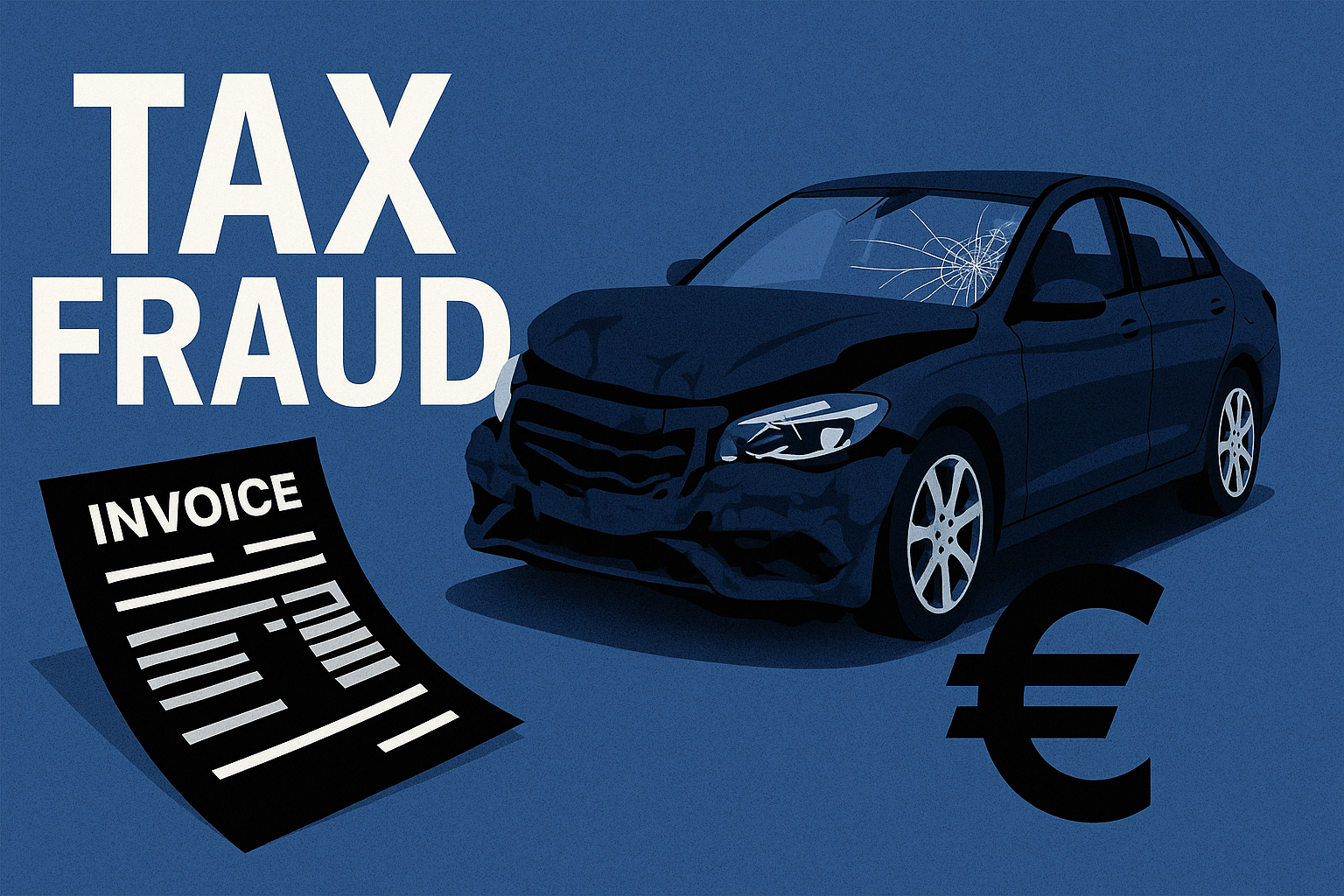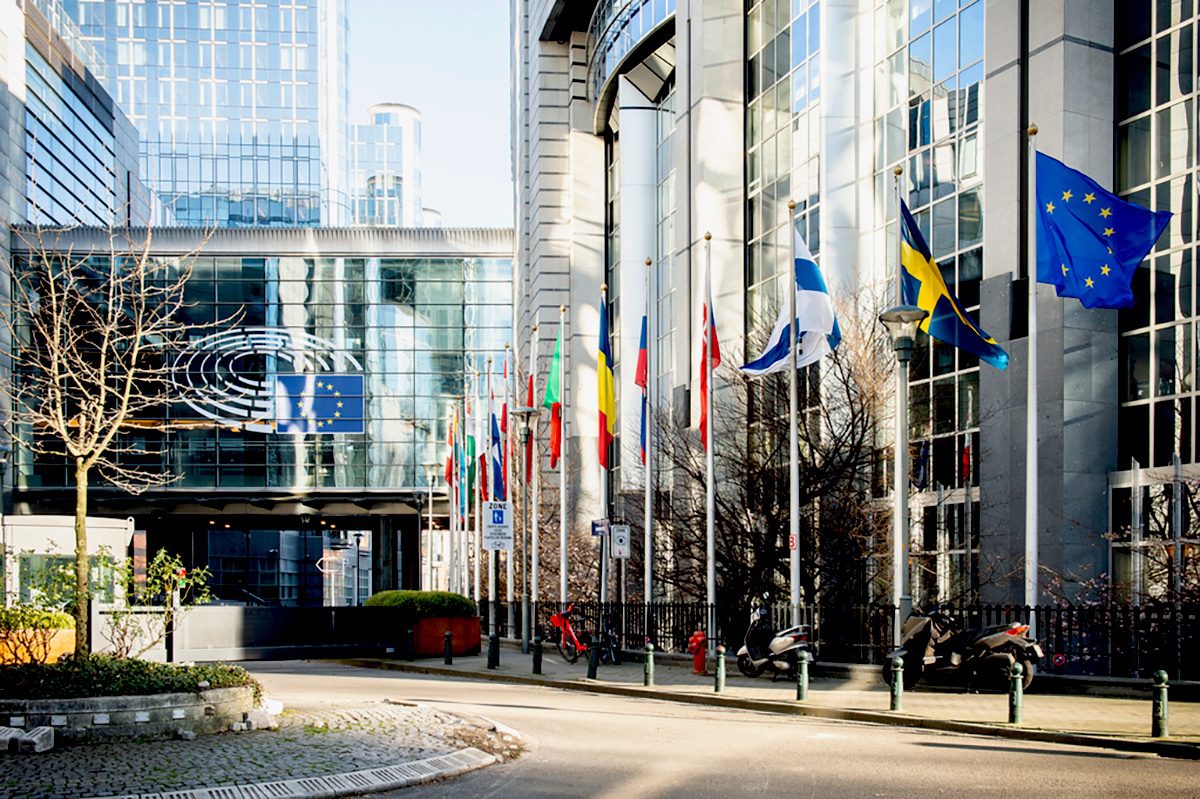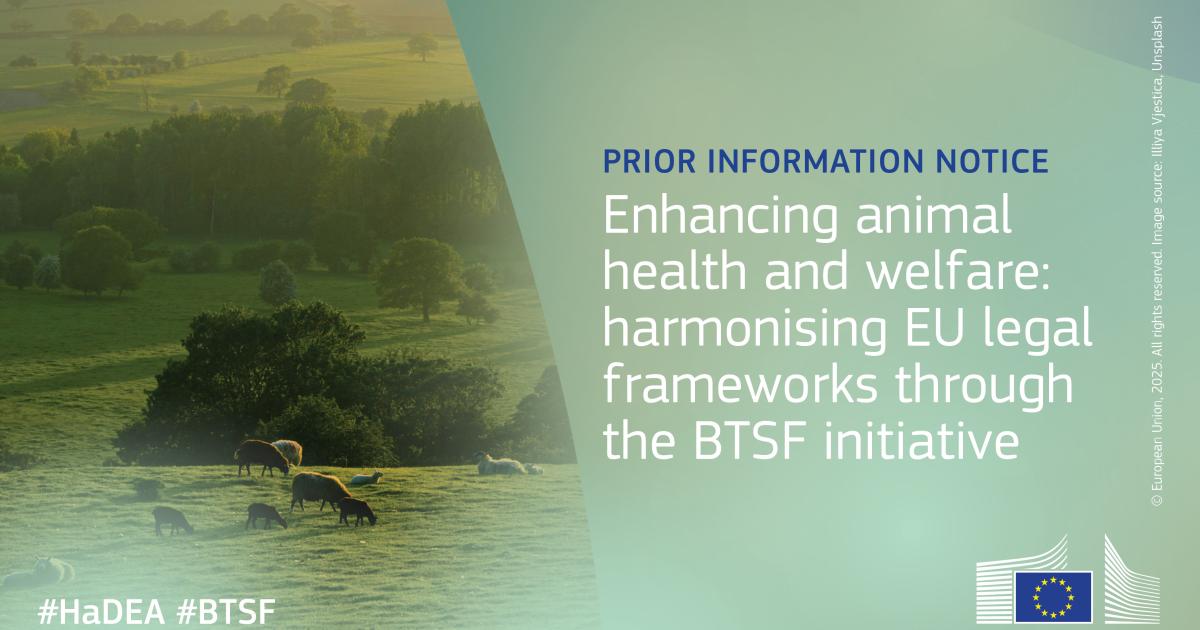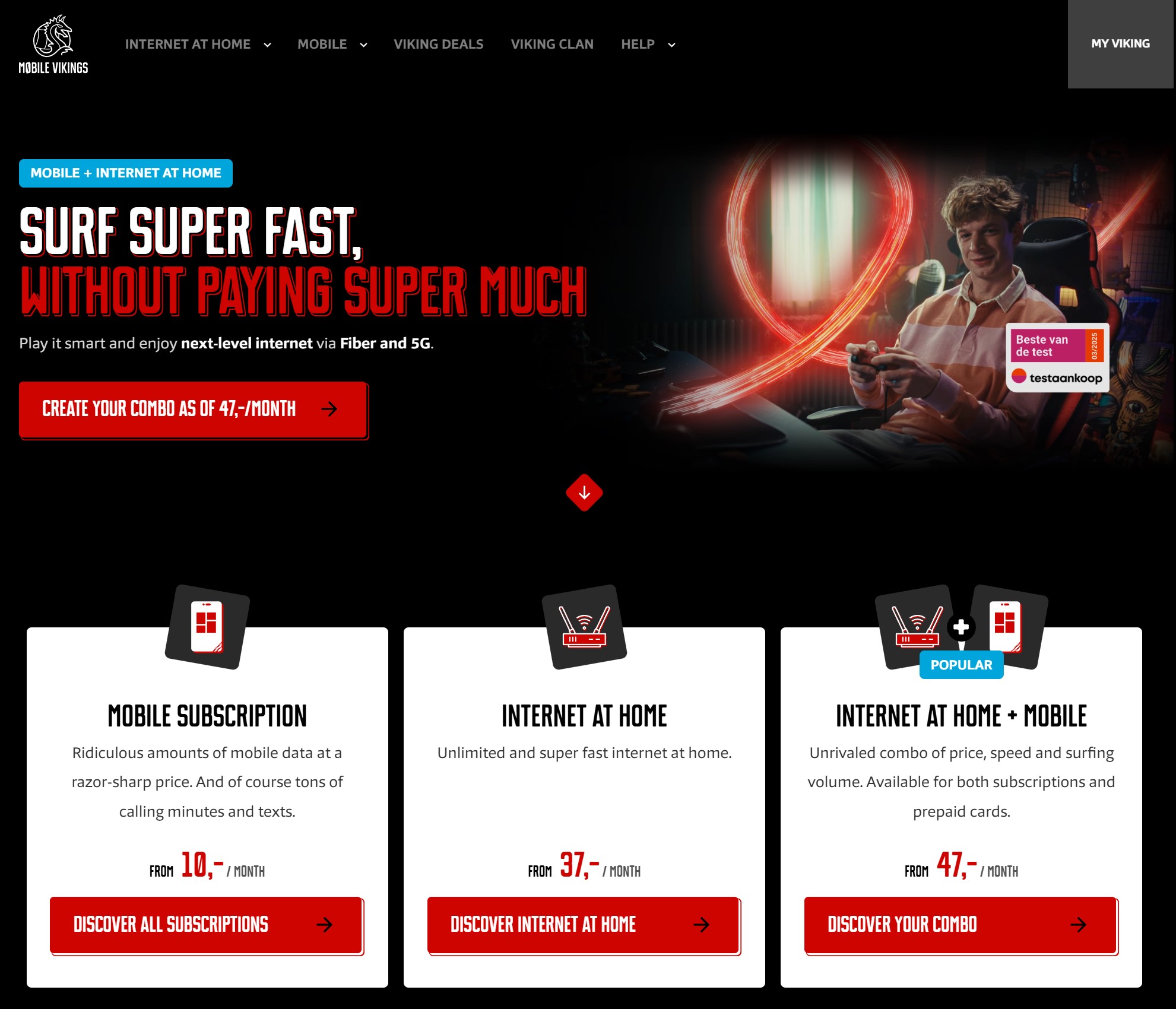Politics
Europol supports strike-down on criminal organisation smuggling tens of thousands of hazardous salvage cars from the US

Europol supported an action led by the European Public Prosecutor’s Office (EPPO) in Berlin (Germany) and Vilnius (Lithuania), which involved around 1 000 police, tax and customs officers carrying out 200 searches in ten countries. The investigation targeted a vast criminal organisation active in smuggling badly damaged cars from the United States (US) into the European Union (EU), and selling them to end customers after superficial repair, while defrauding the payment of customs duties and committing large-scale value-added tax (VAT) fraud.
Apart for the budgetary damage to society, this criminal scheme also posed serious dangers to the safety of European consumers, who unknowingly bought hazardous vehicles for a high price. 10 suspects, including one of the suspected ringleaders of the criminal organisation, a Lithuanian citizen, were arrested. In addition, 18 other suspects were detained for questioning, all Lithuanian citizens. Key suspects of Russian nationality are also under investigation.
The investigation, code-named ‘Nimmersatt’ (‘Insatiable’ in German), extended from the US to Russia, with links to Canada, Hungary, Ireland and the United Kingdom (UK), as well as 11 EU countries. Investigative measures were conducted today and yesterday in Bulgaria, Estonia, Germany, Hungary, Latvia, Lithuania, the Netherlands, Portugal, Romania and Spain.
Wrecked cars, fake import papers, cosmetic repairs and tax fraud
Criminal organisations exploit the US market for cars damaged in accidents, which are often sold by insurance companies abroad or dismantled for scrap. The criminal group targeted by the EPPO-led investigation bought huge quantities of wrecked cars from US insurance companies at online auctions to then ship them to the EU. By using a network of sham companies and fake invoices to cover the origin of the cars, those vehicles arrived in the EU with their commercial history obscured.
The cars arrived at different ports, including Antwerp (Belgium), Bremerhaven (Germany), Klaipėda (Lithuania) and Rotterdam (the Netherlands). In order to evade a substantial part of the customs duties, the perpetrators presented false invoices to the custom authorities, declaring a much lower value than what they paid for the vehicles.
The cars were then transported by land to Lithuania, to be repaired in auto repair shops. However, based on the evidence, the repairs were only superficial, in order to make the cars appear as new and to pass the required technical certification procedures. Later, when the cars were sold to final customers in Germany and in other EU countries, they were presented as “never having had an accident” or “being fully and professionally repaired”, even when they had hidden damage – including missing airbags or other serious security issues. Less valuable vehicles were sold to Eastern European markets.
In Germany, according to the investigation, the vehicles were sold by car dealers linked to the criminal organisation. It is understood that they fraudulently applied reduced VAT, under the so-called ‘margin taxation scheme’. This provision allows resellers to pay VAT only on their profit margin (the difference between the price paid for the item and the price for which it is sold), when selling second-hand goods bought from private individuals. However, the companies under investigation applied this provision unlawfully, as the cars had been imported commercially, mainly from the US, and in some cases also from Canada. The suspected fraud also allowed the wrecked cars to be sold at a lower market price, thus causing unfair competition.
In Lithuania, the members of the organised crime group are believed to have used Lithuanian companies to also launder their profits from VAT fraud and payments in cash from car buyers. The investigation determined that the Lithuanian cell of the organisation used companies in Bulgaria, Estonia, Hungary, Latvia, Lithuania, the Netherlands and Romania to fraudulently conceal the true turnover of the trade in salvage cars. This Lithuanian cell was established in 2020 and headed by a Lithuanian national who was arrested in the course of this action. From Lithuania alone, at least 16 500 cars were sold for an amount of EUR 144 million.
Complex international criminal chain
Thanks to the joint efforts of the EPPO, Europol, Eurojust and national law enforcement authorities, the investigation uncovered an extremely complex criminal scheme with ramifications in 18 countries. The individuals targeted by this operation were the criminal organisation’s leading members from Russia and Lithuania, as well as suspects responsible for the import and transport of the vehicles as well as dozens of car dealers.
The damage caused by these criminal activities, which is still under assessment, is estimated to be at least EUR 31 million in unpaid VAT and customs duties. Freezing orders of up to EUR 26.5 million were granted. For the time being, bank accounts were frozen, and 116 cars worth approximately EUR 2.3 million were seized, as well as EUR 0.5 million in cash and luxury items.
Europol’s role
Europol collected and analysed contributions by its partners, with the outcomes shared as analytical reports (such as cross-references in Europol’s databases), travel intelligence reports (to support the monitoring of main suspects) or financial intelligence reports (to identify as wide a possible overview of the financial circuits of the criminal activity to facilitate asset recovery measures). On the action day, Europol established a virtual command post for communications between the investigation teams and the central command centre set up in the EPPO headquarters. One Europol expert with a mobile office was deployed to the central command centre while six Europol digital forensics experts were deployed to the actions in Lithuania and Latvia, supporting on the spot.
This investigation took place in the framework of an EMPACT Operational Action to combat organised crime groups involved in VAT fraud and other financial crime in the field of importation and trade of crashed cars from third countries (such as the US) into the EU. This EMPACT Operational Action is led by Lithuania and supported and coordinated by Europol from the very first instance when Lithuania shared information about this new modus operandi. 13 countries took part in a SIENA string that allowed them to share information about national investigations that would then develop into EPPO cases.
The EPPO is the independent public prosecution office of the European Union. It is responsible for investigating, prosecuting and bringing to judgment crimes against the financial interests of the EU. This investigation involved 16 European Delegated Prosecutors and counted on the support of the Dresden tax office in Germany, the Financial Crime Investigation Service (FCIS) in Lithuania, Europol, Eurojust and law enforcement forces from several countries. The cooperation with UK tax authorities was also crucial to the inquiry.
The investigation, code-named ‘Nimmersatt’ (‘Insatiable’ in German), extended from the US to Russia, with links to Canada, Hungary, Ireland and the United Kingdom (UK), as well as 11 EU countries. Investigative measures were conducted today and yesterday in Bulgaria, Estonia, Germany, Hungary, Latvia, Lithuania, the Netherlands, Portugal, Romania and Spain.Wrecked cars, fake import papers, cosmetic repairs and tax fraudCriminal organisations…
Source link
Politics
The EBA updates list of indicators used to perform risk assessments


© FRVS+MPCP 2022. The European Times® News is registered as an EU Trademark. All rights reserved. The European Times® and the logo of The European Times® are EU trademarks registered by FRVS+MPCP.
Members/Partners of

About Us
Popular Category
DISCLAIMER OPINIONS: The opinions of the authors or reproduced in the articles are the ones of those stating them and it is their own responsibility. Should you find any incorrections you can always contact the newsdesk to seek a correction or right of replay.
DISCLAIMER TRANSLATIONS: All articles in this site are published in English. The translated versions are done through an automated process known as neural translations. If in doubt, always refer to the original article. Thank you for understanding.
DISCLAIMER PHOTOS: We mostly used photos images that are readily available online, from free sources, or from the people promoting the news. If by any chance it happens that we have used one of your copyrighted photos, please do not hesitate to contact us and we will take it down without question. We do not make profits as this is a not for profit project to give voice to the voiceless while giving them a platform to be informed also of general news, and it is completely free.
Editor Picks
Politics
Monetary policy decisions

17 April 2025
The Governing Council today decided to lower the three key ECB interest rates by 25 basis points. In particular, the decision to lower the deposit facility rate – the rate through which the Governing Council steers the monetary policy stance – is based on its updated assessment of the inflation outlook, the dynamics of underlying inflation and the strength of monetary policy transmission.
The disinflation process is well on track. Inflation has continued to develop as staff expected, with both headline and core inflation declining in March. Services inflation has also eased markedly over recent months. Most measures of underlying inflation suggest that inflation will settle at around the Governing Council’s 2% medium-term target on a sustained basis. Wage growth is moderating, and profits are partially buffering the impact of still elevated wage growth on inflation. The euro area economy has been building up some resilience against global shocks, but the outlook for growth has deteriorated owing to rising trade tensions. Increased uncertainty is likely to reduce confidence among households and firms, and the adverse and volatile market response to the trade tensions is likely to have a tightening impact on financing conditions. These factors may further weigh on the economic outlook for the euro area.
The Governing Council is determined to ensure that inflation stabilises sustainably at its 2% medium-term target. Especially in current conditions of exceptional uncertainty, it will follow a data-dependent and meeting-by-meeting approach to determining the appropriate monetary policy stance. In particular, the Governing Council’s interest rate decisions will be based on its assessment of the inflation outlook in light of the incoming economic and financial data, the dynamics of underlying inflation and the strength of monetary policy transmission. The Governing Council is not pre-committing to a particular rate path.
Key ECB interest rates
The Governing Council today decided to lower the three key ECB interest rates by 25 basis points. Accordingly, the interest rates on the deposit facility, the main refinancing operations and the marginal lending facility will be decreased to 2.25%, 2.40% and 2.65% respectively, with effect from 23 April 2025.
Asset purchase programme (APP) and pandemic emergency purchase programme (PEPP)
The APP and PEPP portfolios are declining at a measured and predictable pace, as the Eurosystem no longer reinvests the principal payments from maturing securities.
***
The Governing Council stands ready to adjust all of its instruments within its mandate to ensure that inflation stabilises sustainably at its 2% target over the medium term and to preserve the smooth functioning of monetary policy transmission. Moreover, the Transmission Protection Instrument is available to counter unwarranted, disorderly market dynamics that pose a serious threat to the transmission of monetary policy across all euro area countries, thus allowing the Governing Council to more effectively deliver on its price stability mandate.
The President of the ECB will comment on the considerations underlying these decisions at a press conference starting at 14:45 CET today.
Source link
Politics
Prior Information Notice – Enhancing Animal Health and Welfare: Harmonising EU Legal Frameworks through the BTSF Initiative



DISCLAIMER: Information and opinions reproduced in the articles are the ones of those stating them and it is their own responsibility. Publication in The European Times does not automatically means endorsement of the view, but the right to express it.
DISCLAIMER TRANSLATIONS: All articles in this site are published in English. The translated versions are done through an automated process known as neural translations. If in doubt, always refer to the original article. Thank you for understanding.

– Advertisement –
– Advertisement –
HaDEA has published the Prior Information Notice HADEA/2025/OP/0012-PIN – Enhancing Animal Health and Welfare in EU Member States and Candidate Countries: Harmonising EU Legal Frameworks through the ‘Better Training for Safer Food’ Initiative.
The subject of this call for tenders is the organisation and implementation of training activities on Animal Health and Animal Welfare Law under the “Better Training for Safer Food” initiative. The execution of the tasks will be divided in two separate phases of 30 months each. The main objectives of this call for tenders are:
- Protecting the EU from animal diseases
- Harmonising EU legislation
- Promoting sustainable food systems
- Supporting DG SANTE priorities and enhancing global recognition of EU standards
The main beneficiaries will be EU Member States and Candidate Countries, with some non-EU countries (EU Neighborhood countries), which will be also covered based on European Commission strategic objectives.
Estimated budget: €3 900 000
Interested parties are invited to check the Funding and Tenders Portal for the upcoming publication of the call for tenders.
Background
Better Training for Safer Food (BTSF) is a European Commission training initiative to improve the knowledge and implementation of EU rules covering food safety, plant, animal, and One Health.
The basic training principles involve the delivery of information, knowledge sharing and networking, and using the train-the-trainer approach to disseminate the knowledge attained. Training delivery may be through face-to-face courses, virtual classrooms or eLearning.
Source link
More from the author
– EXCLUSIVE CONTENT –
-

 EU & the World6 days ago
EU & the World6 days agoHow Old Are the Menendez Brothers in 2025? Lyle and Erik’s Ages Today
-

 EU & the World7 days ago
EU & the World7 days agoWhere to Stream Coachella 2025: How to Watch the Show
-

 EU & the World6 days ago
EU & the World6 days agoCelebrities Going to Space: Katy Perry & More in the Blue Origin Crew
-

 Sports6 days ago
Sports6 days agoDavid Massey: “A historic edition for the Rolex Monte Carlo Masters.”
-

 EU & the World6 days ago
EU & the World6 days agoHow Did Kyren Lacy Die? Updates on the LSU Player’s Death
-

 Sports5 days ago
Sports5 days agoLuka Modric looks to the future: enters as minority owner of Swansea
-

 EU & the World4 days ago
EU & the World4 days agoSedona Prince Allegations: Why She Wasn’t Selected in WNBA Draft
-

 Sports2 days ago
Sports2 days agoEdison Callejas dominates the third stage of the Giro d'Abruzzo








